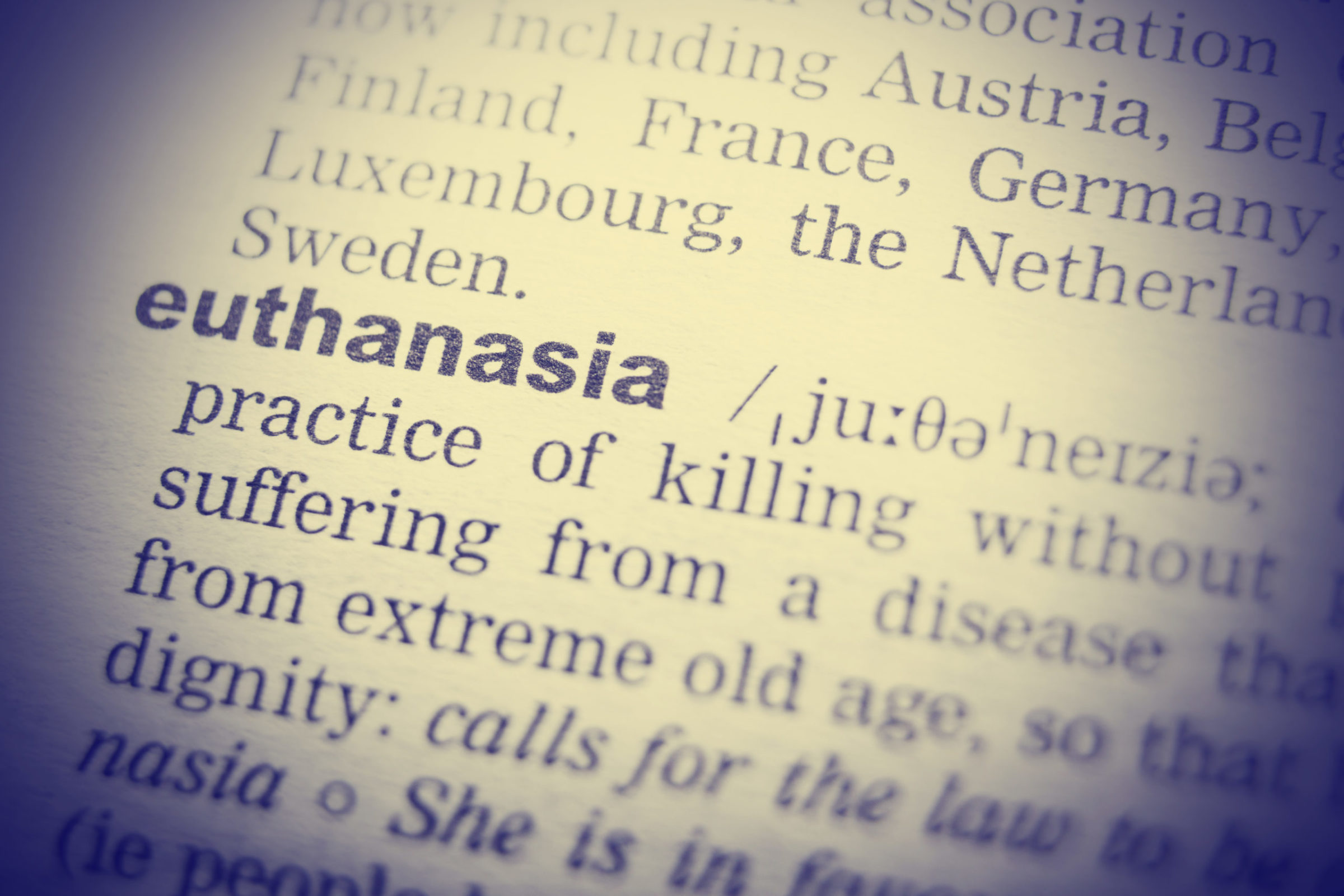Medical Aid in Dying: Euphemism of Choice for Assisted Suicide
Originally published at National Review- Categories
- Euthanasia
The word engineering never stops, does it? When radical policies are proposed, the first step is to change the lexicon to make it seem less extreme, even mundane.
That has certainly been true in the euthanasia movement. Indeed, as described by Ian Dowbiggin in A Concise History of Euthanasia, the term “euthanasia” — which originally meant a peaceful death, in a state of grace — was the first word co-opted by advocates of mercy killing or assisted suicide as a tactic to obscure the fact that the practice involves killing.
But “euthanasia” no longer obscures, so the current gooey euphemism of choice in the euthanasia/assisted-suicide movement is “medical aid in dying,” or MAID. Once the death activists started pushing it, most — albeit not all — media adopted that terminology. Science writer Rachel E. Gross describes the purpose for the word engineering in the pages of the New York Times. From, “How Aid in Dying Became Medical, Not Moral:”
Many health advocates and medical professionals insist that a terminally ill patient taking medication to hasten the end is doing something fundamentally different from suicide. The term “medical aid in dying,” they say, is meant to emphasize that someone with a terminal diagnosis is not choosing whether but how to die. . . .
“There is a significant, a meaningful difference between someone seeking to end their life because they have a mental illness, and someone seeking to end their life who is going to die in the very near future anyway,” said Dr. Matthew Wynia, director of the University of Colorado’s Center for Bioethics and Humanities.
What poppycock. To “assist” means to provide support or aid in an endeavor. “Suicide” means to take one’s own life voluntarily or intentionally. It describes what is done, not why.
Hence, the term assisted suicide is both accurate and descriptive. Which, of course, is precisely why assisted-suicide advocates oppose it.
Moreover, suicide is suicide. There is no difference in the consequence of the act. Life ceases — whether the deceased is someone who is mentally ill, a grief-stricken mother whose child has died, the humiliated failed businessperson, or a patient with an illness or disability. Well, there is one difference. We now allow some suicides to be facilitated where laws allow it, while seeking to prevent the others (at least for now).
Also note that the MAID euphemism is deployed ubiquitously for lethal-injection homicides by doctors and nurse practitioners in Canada — where fatal jabs are definitely not limited to the terminally ill, and indeed, next year will be available to the mentally ill.
The focus on terminal illness as the reason for asking for doctor-prescribed suicide is yet another deflection. True, laws allowing assisted suicide in this country still require a diagnosis of six months or less to live — although there are several cases of people living for years after receiving a lethal prescription. But once the assisted-suicide beachhead has finally been secured, the terminal-illness requirement will be dropped. At that point, I bet that the MAID obfuscation will continue on because its purpose is to serve as the honey that helps the hemlock go down.
MAID isn’t the only obscuring terminology applied by promoters of assisted suicide, as noted by Gross:
Since its enactment in 1997, more than 3,700 Oregonians have taken measures permitted by the law, which allows patients with a terminal illness and the approval of two doctors to receive life-ending medication. The practice is now legal in 10 U.S. states and Washington, D.C.
The drugs used to end life are not “medications.” They are poisons — substances capable of causing the illness or death of a living organism. These substances are taken with lethal intent, not to cure, palliate, or heal. Indeed, in some cases, the same drugs used to execute murderers by lethal injection are the ones used by people who commit assisted suicide.
As Gross notes, the whole point of this lexicon charade is to encourage more assisted suicides by providing a medical imprimatur:
A phrase like “medical aid in dying,” [assisted-suicide advocates] concluded, would reassure patients that they were taking part in a process that was regulated and medically sanctioned. “Medicine has that legitimating power, like it or not,” says Anita Hannig, an anthropologist at Brandeis University and author of the book “The Day I Die: The Untold Story of Assisted Dying in America.” “That really removes a lot of the stigma.”
I don’t believe in judging people who commit suicide, whatever the circumstance. None of us knows what our limits might be. But if we ever enter that darkness, shouldn’t we — including when we are dying — receive prevention rather than facilitation? Otherwise, we are distinguishing among those we think have lives worth living and those we are — at least implying — do not.
I knew several people who were dying and wanted assisted suicide, who changed their minds and lived the remaining days of their natural lives very glad they didn’t receive it. Besides, if people don’t kill themselves because of concern about stigma, isn’t that good? I mean, shouldn’t we want fewer people to commit suicide?
Bottom line: Just as when one calls a dung beetle a butterfly it remains a dung beetle, so too advocates who call assisted suicide “medical aid in dying” are still talking about suicide. If that simple fact keeps people from taking a lethal prescription, the more the better.
